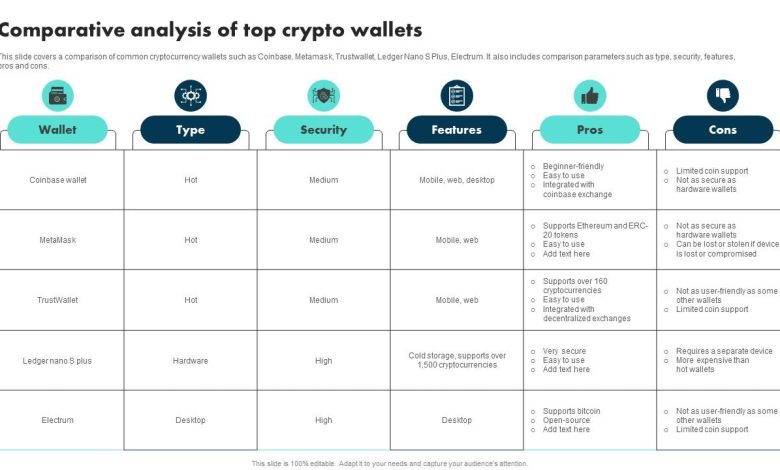Analyzing the Security Features of Popular Crypto Exchanges

- Understanding the Importance of Security in Crypto Exchanges
- Comparing the Security Measures of Top Crypto Exchanges
- Exploring the Vulnerabilities in Popular Crypto Exchanges
- Tips for Safely Trading on Crypto Exchanges
- The Role of Regulation in Ensuring Security on Crypto Exchanges
- Case Studies: Security Breaches in Crypto Exchanges
Understanding the Importance of Security in Crypto Exchanges
Understanding the importance of security in crypto exchanges is crucial for investors and traders alike. With the increasing popularity of cryptocurrencies, the number of cyber threats targeting exchanges has also risen. It is essential for users to be aware of the security features implemented by exchanges to protect their assets.
Security in crypto exchanges involves various measures such as encryption, two-factor authentication, cold storage, and regular security audits. These features help in safeguarding users’ funds and personal information from hackers and malicious actors. By prioritizing security, exchanges can build trust with their users and ensure a safe trading environment.
Investors should carefully evaluate the security measures of different exchanges before choosing where to trade. It is recommended to opt for platforms that have a strong track record of security and prioritize the protection of user assets. Additionally, staying informed about the latest security threats and best practices can help users mitigate risks and protect their investments.
Comparing the Security Measures of Top Crypto Exchanges
When comparing the security measures of top cryptocurrency exchanges, it is essential to consider various factors that contribute to the overall safety of users’ funds and data. These exchanges implement a range of security features to protect against hacking attempts and unauthorized access. Some of the key security measures to look out for include:
– **Two-factor authentication (2FA)**: Many exchanges offer 2FA as an additional layer of security to verify users’ identities when logging in or making transactions. This helps prevent unauthorized access even if login credentials are compromised.
– **Cold storage**: Some exchanges store the majority of users’ funds in offline cold wallets, which are not connected to the internet. This reduces the risk of hacking since the funds are not accessible online.
– **Encryption**: Exchanges often use encryption protocols to secure users’ data and communications. This ensures that sensitive information is protected from interception by malicious actors.
– **Regular security audits**: Top exchanges frequently undergo security audits by third-party firms to assess their systems for vulnerabilities and ensure compliance with industry best practices.
– **Insurance**: Some exchanges offer insurance coverage for users’ funds in case of a security breach or hack. This provides an additional layer of protection and peace of mind for traders.
By comparing these security measures across different exchanges, users can make informed decisions about where to trade based on the level of security offered. It is crucial to prioritize safety when choosing a cryptocurrency exchange to mitigate the risks associated with trading in the volatile crypto market.
Exploring the Vulnerabilities in Popular Crypto Exchanges
When it comes to popular crypto exchanges, it is crucial to analyze the security features they offer. One of the key aspects to consider is the vulnerabilities that these exchanges may have. By exploring these vulnerabilities, users can better understand the potential risks involved in using a particular exchange.
Some of the common vulnerabilities found in popular crypto exchanges include phishing attacks, malware targeting, and insider threats. Phishing attacks involve fraudulent attempts to obtain sensitive information such as usernames, passwords, and financial details. Malware targeting can lead to unauthorized access to users’ accounts and funds. Insider threats, on the other hand, involve malicious actions taken by individuals within the exchange itself.
It is essential for users to be aware of these vulnerabilities and take necessary precautions to protect their assets. This can include using two-factor authentication, keeping software up to date, and avoiding suspicious links and emails. Additionally, users should consider diversifying their holdings across multiple exchanges to minimize the impact of a potential security breach.
Tips for Safely Trading on Crypto Exchanges
When it comes to trading on crypto exchanges, it is crucial to prioritize safety and security. Here are some tips to help you trade securely:
- Choose exchanges that have a strong reputation for security and have never been compromised.
- Enable two-factor authentication (2FA) on your account to add an extra layer of security.
- Avoid using public Wi-Fi networks when accessing your exchange account to prevent potential hacking.
- Regularly update your passwords and use unique, complex passwords for each exchange account.
- Be cautious of phishing attempts and only click on links or download files from trusted sources.
By following these tips, you can help protect your assets and trade with peace of mind on crypto exchanges.
The Role of Regulation in Ensuring Security on Crypto Exchanges
Regulation plays a crucial role in ensuring the security of crypto exchanges. By imposing rules and guidelines, regulatory bodies help to protect investors and prevent fraudulent activities. **Compliance** with regulations also enhances the credibility of exchanges, making them more trustworthy in the eyes of users.
One of the key aspects of regulation is **KYC** (Know Your Customer) and **AML** (Anti-Money Laundering) procedures. These requirements help exchanges verify the identity of their users and monitor transactions for suspicious activities. By implementing robust KYC and AML measures, exchanges can reduce the risk of illicit behavior on their platforms.
Additionally, regulatory oversight can help exchanges improve their cybersecurity practices. **Regulators** often set standards for data protection, encryption, and **incident response** planning. By following these guidelines, exchanges can strengthen their defenses against cyber attacks and safeguard user funds.
Moreover, regulation can also address issues related to **market manipulation** and **insider trading**. By enforcing rules against these practices, regulators can promote a fair and transparent trading environment on crypto exchanges. This, in turn, can boost investor confidence and attract more participants to the market.
In conclusion, regulation plays a vital role in ensuring the security of crypto exchanges. By setting standards for **compliance**, KYC/AML procedures, cybersecurity practices, and market integrity, regulatory bodies help to protect users and promote trust in the crypto ecosystem. Exchanges that prioritize regulatory compliance are more likely to thrive in the long run and contribute to the overall growth and legitimacy of the industry.
Case Studies: Security Breaches in Crypto Exchanges
Several high-profile security breaches have occurred in various crypto exchanges, highlighting the importance of robust security measures in the cryptocurrency industry. These incidents serve as cautionary tales for both users and exchange operators, emphasizing the need for constant vigilance and proactive security protocols.
One notable case study is the breach of Exchange X, where hackers exploited a vulnerability in the exchange’s system to gain unauthorized access to user funds. This incident resulted in significant financial losses for users and damaged the reputation of the exchange. The aftermath of the breach underscored the importance of regular security audits and prompt response to potential threats.
Another example is the security breach at Exchange Y, where hackers used sophisticated phishing techniques to trick users into revealing their login credentials. This breach compromised the personal information of thousands of users and raised concerns about the exchange’s security practices. It highlighted the need for robust authentication mechanisms and user education to prevent such incidents.
These case studies demonstrate the evolving nature of cybersecurity threats in the crypto industry and the critical role of security features in protecting user assets. By learning from past breaches and implementing best practices in security, crypto exchanges can enhance their defenses against malicious actors and safeguard the integrity of the cryptocurrency ecosystem.



